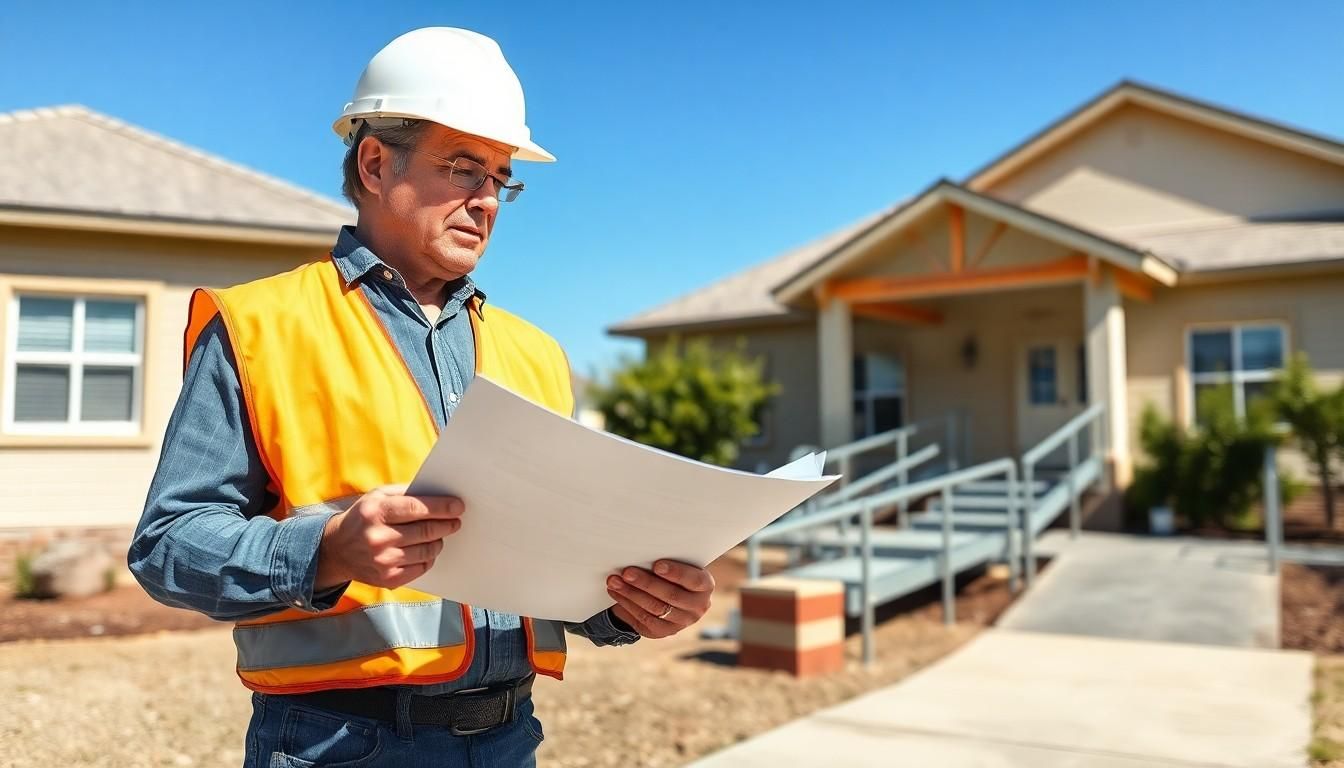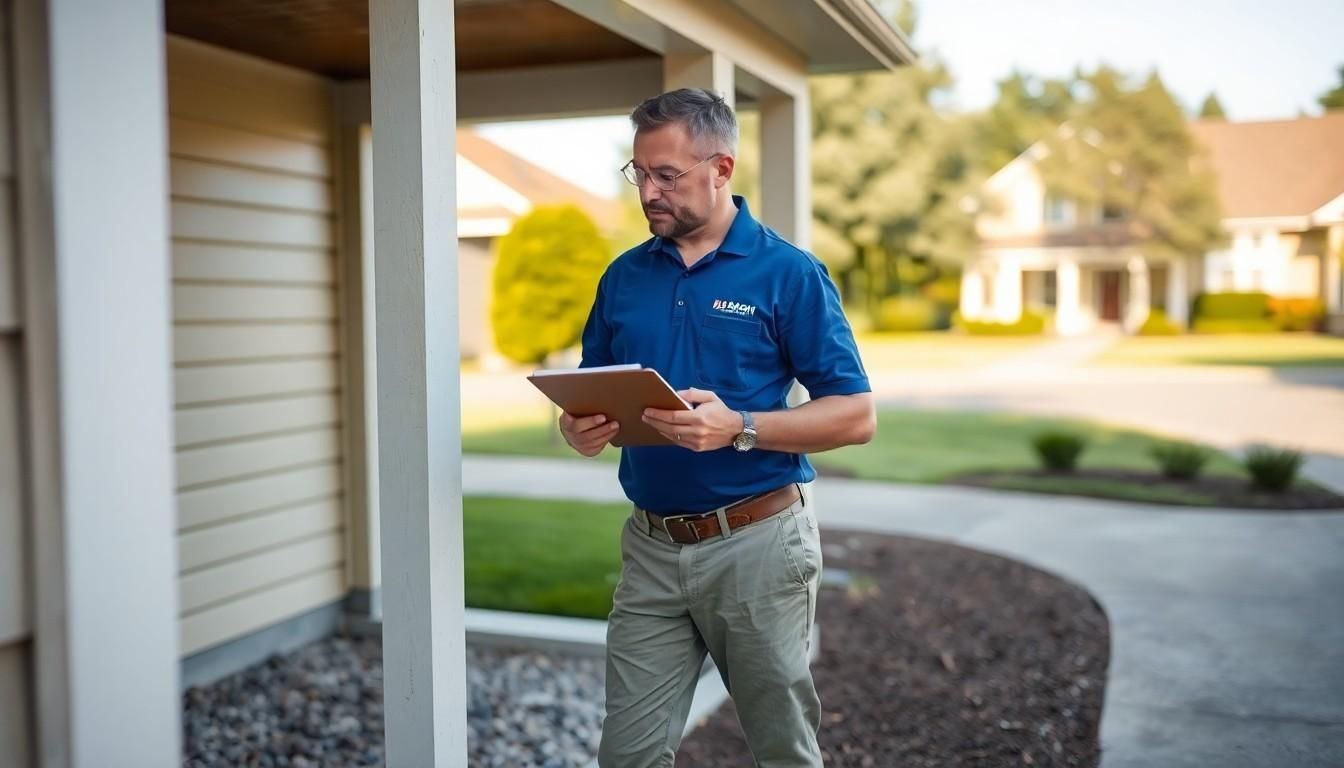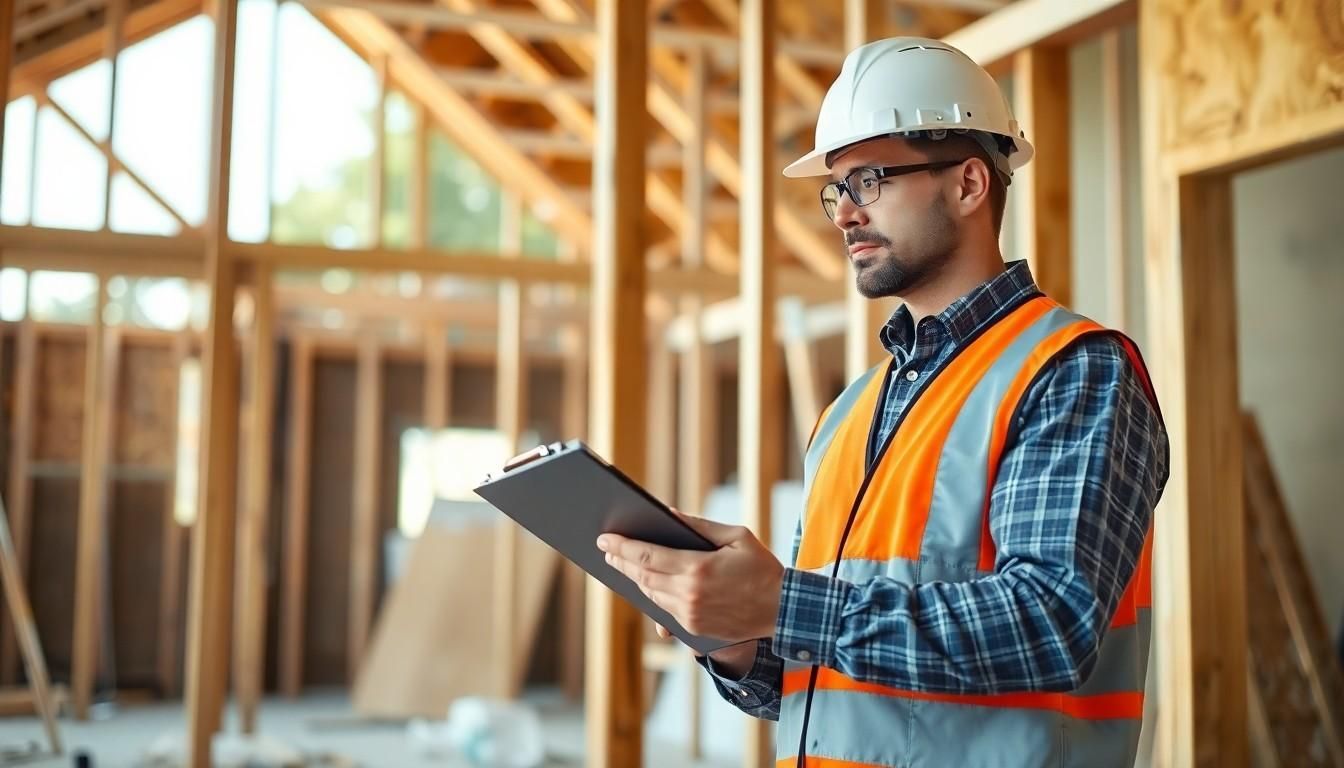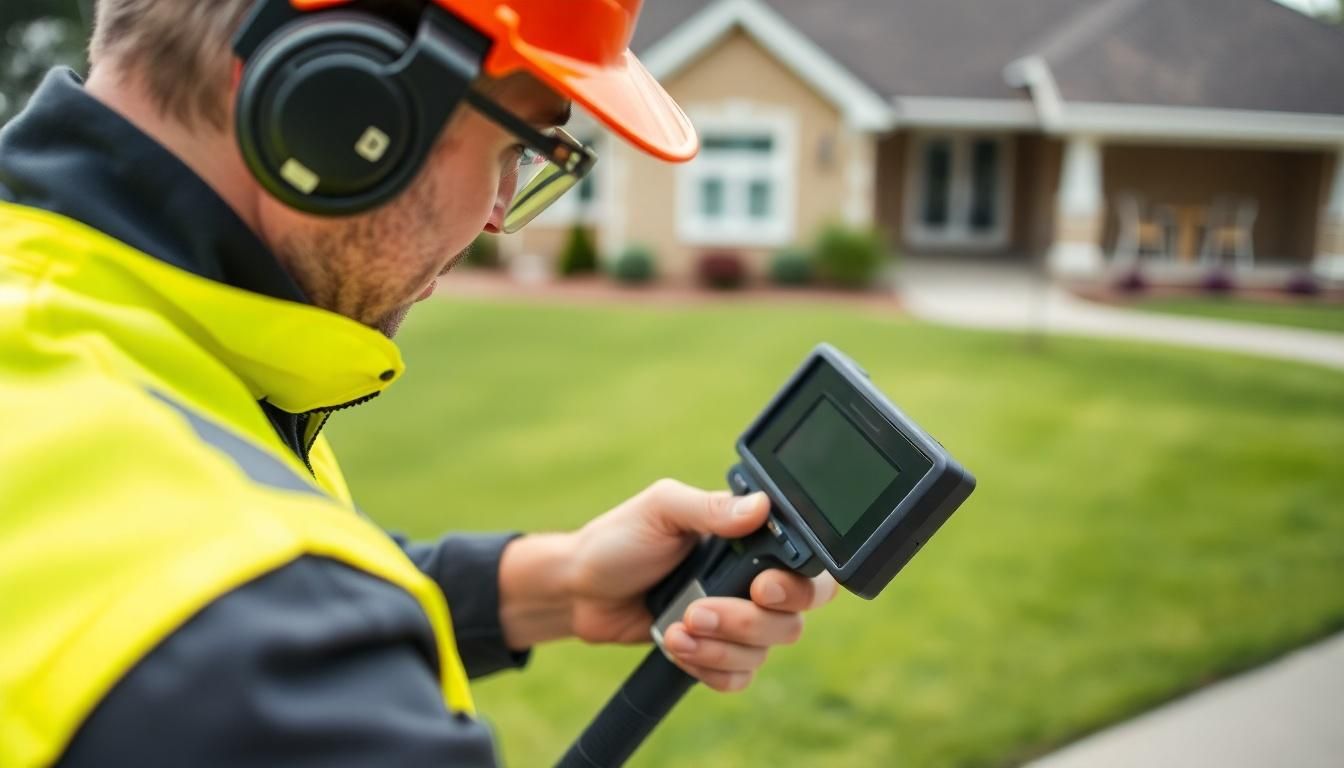Houston's Commercial Inspection Checklist: What You Need to Know
Navigating the bustling commercial real estate market in Houston requires a keen eye for detail, especially when it comes to property inspections. A thorough commercial inspection checklist is essential for identifying potential issues that could affect safety, functionality, and compliance. With the city's unique weather conditions and geological factors, understanding what to look for can save investors from costly repairs down the line.
Whether you're buying or selling, having a solid checklist in hand ensures that no critical aspect of the property goes overlooked. From structural integrity to specialized equipment, each item on the list plays a pivotal role in making informed investment decisions. This article will delve into the key components of a Houston commercial inspection checklist, equipping you with the knowledge needed to protect your investment and navigate the complexities of the real estate landscape.
Overview of Houston Commercial Inspection Checklist
A commercial inspection checklist in Houston focuses on several crucial elements that directly impact property safety and compliance. Inspectors assess the structural integrity of buildings, ensuring that walls, roofs, and foundations are sound. They identify problems ranging from minor wear to major structural issues, which are vital for both buyers and sellers.
Safety plays a paramount role in the checklist. Inspectors examine fire safety systems, including alarms, extinguishers, and exit routes. They also evaluate electrical systems, ensuring that wiring meets current standards to prevent hazards. Plumbing systems receive thorough scrutiny to detect leaks or code violations.
Functionality is another key aspect. The checklist addresses HVAC systems, confirming they maintain temperature control efficiently. Inspectors assess the state of elevators, ensuring they operate correctly and safely. These considerations help in determining the usability of spaces for future tenants.
Compliance with local codes and regulations is essential. Inspectors verify that buildings adhere to zoning laws and accessibility requirements. They check for permits and past inspections, ensuring that all modifications were performed under legal guidelines. This step is especially significant for properties with unique needs, such as medical facilities or restaurants.
Localized factors also influence the checklist in Houston. Weather conditions can lead to specific issues, such as water damage from heavy rains or erosion caused by flooding. Inspectors look for signs of weather-related wear, especially in the exterior components of a building.
When preparing for a commercial inspection, property owners should gather necessary documents, such as past inspection reports and maintenance records. This information aids the inspector in forming a comprehensive assessment.
The checklist serves not only as a tool for buyers but also provides sellers with insights into their property’s condition, allowing them to address issues proactively. Knowledge gathered from the checklist ultimately empowers stakeholders to make informed decisions in Houston's competitive real estate market.

Importance of Commercial Inspections
Commercial inspections hold significant value in the real estate sector, particularly in Houston. These assessments uncover hidden issues that could jeopardize safety and functionality. Awareness of a building's condition allows owners and investors to safeguard their investments effectively.
Safety and Compliance
Safety always ranks at the top of priorities during commercial inspections. Inspectors rigorously evaluate fire safety systems, electrical, and plumbing installations to prevent hazards. For instance, poorly maintained fire sprinkler systems could pose catastrophic risks. Compliance with local regulations forms another core aspect of inspections. Inspectors verify adherence to zoning laws and accessibility standards. Inspectors also assess facilities for ADA compliance, ensuring they meet necessary guidelines for individuals with disabilities.
Local weather conditions further complicate compliance scenarios. Heavy rains and storms can lead to unique structural vulnerabilities, which inspectors monitor closely. Consequently, even small oversights in these areas can lead to substantial liabilities down the line. Observing safety and compliance results in enhanced tenant security and peace of mind.
Investment Protection
Investment protection stands as a primary benefit of conducting thorough commercial inspections. Detecting issues early mitigates the potential for expensive repairs later. For example, resolving a minor leak in the roof early can prevent costly damage to the building’s interior and long-term structural integrity. Buyers and sellers alike gain significant leverage during negotiations by utilizing inspection reports. Armed with knowledge of a building’s condition, they can argue for necessary price adjustments.
Additionally, maintaining a comprehensive inspection history preserves property value over time. Regular inspections promote a proactive maintenance strategy, extending the lifespan of critical systems—such as HVAC and plumbing infrastructure. Presenting a well-maintained property attracts tenants and retains value in a competitive market. Ultimately, commercial inspections deliver tremendous benefits, thereby fostering successful property management and investment strategies in Houston.
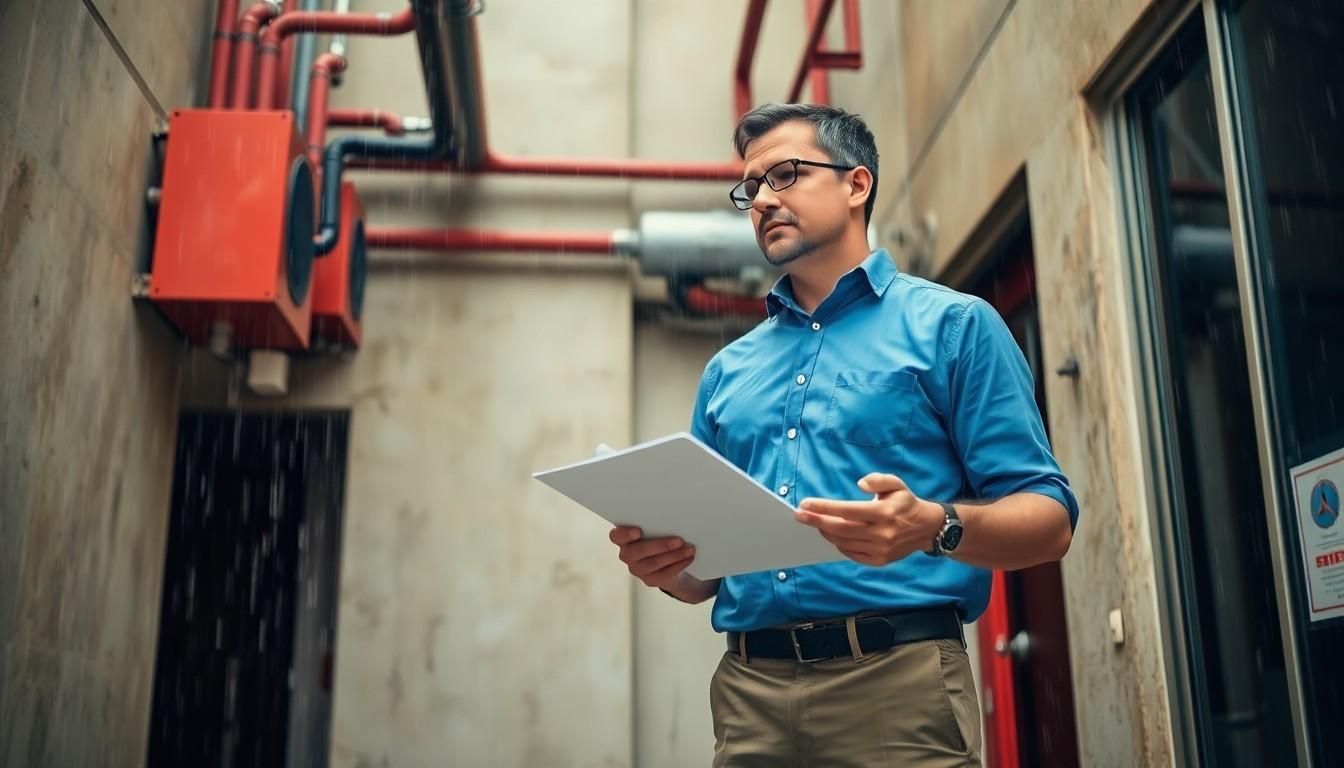
Key Components of the Houston Commercial Inspection Checklist
A thorough Houston commercial inspection checklist includes several critical components that ensure the safety and functionality of a property. Understanding these elements can significantly benefit both buyers and sellers in the real estate market.
Structural Assessment
Inspectors conduct a detailed structural assessment of the property. They examine load-bearing elements such as walls, beams, and foundations. The goal is to identify any signs of wear, potential damage, or structural vulnerabilities. Given Houston's unique weather patterns, inspectors often check for water damage or deterioration caused by floods. This step is crucial since even minor structural issues can lead to larger, costly repairs.
Electrical Systems Evaluation
An electrical systems evaluation addresses essential safety aspects. Inspectors review wiring conditions, ensuring that connections are secure and components are up to code. They assess circuit breakers and load capacities to prevent overloads, which can create fire hazards. Without proper evaluation, small issues can escalate into major problems, threatening both the property and tenants.
Plumbing Inspection
A comprehensive plumbing inspection identifies potential leaks and serviceability of water pipes. Inspectors check for corrosion in pipes and assess the functionality of fixtures. Since damaged plumbing can lead to water waste and exorbitant utility bills, timely inspections can save owners money. Determining the condition of systems like water heaters also falls under this assessment, ensuring they meet current operational standards.
HVAC Systems Review
Inspectors perform an HVAC systems review to evaluate heating and cooling efficiency. They examine ductwork for leaks and inspect filters and compressors for wear. Proper functioning of HVAC systems is vital for tenant comfort. Inspections not only highlight immediate concerns but also suggest maintenance practices that enhance system longevity and energy efficiency.
Pest Control Evaluation
A pest control evaluation focuses on identifying infestations or signs of pest activity. Inspectors look for damage caused by rodents, insects, or other pests. Addressing these concerns is essential since infestations can damage property and impact tenant health. Prompt detection of pest issues can lead to effective remediation strategies, safeguarding the property and its occupants.
Tips for Conducting a Successful Inspection
Conducting a successful inspection requires thorough preparation and professional expertise. Following these tips can help streamline the process and enhance the quality of findings.
Hiring Qualified Inspectors
Hiring qualified inspectors proves essential for achieving accurate results. Experts bring extensive knowledge of local building codes and standards. These professionals evaluate structural components, plumbing systems, and electrical infrastructure. Furthermore, engaging teams with specific expertise ensures a comprehensive assessment. Check credentials and past performance reviews to evaluate prospective inspectors. A well-credentialed inspector often identifies issues that others might overlook, providing crucial insights.
Preparation and Planning
Preparation and planning set the stage for a successful inspection. Gather all relevant documentation prior to the inspection, including maintenance records and previous reports. Create a detailed checklist to guide the inspection process. Conducting a pre-inspection meeting with inspectors helps clarify expectations and outline specific areas of concern. Define the scope of work beforehand to avoid overlooking critical elements. Additionally, setting a timeline ensures all necessary evaluations occur without delay. What good is a thorough inspection if essential details are missed?
Conclusion
A well-structured commercial inspection checklist is essential for navigating the complexities of the Houston real estate market. By focusing on key components like structural integrity and compliance with local codes, property owners can safeguard their investments.
Thorough inspections not only reveal hidden issues but also enhance negotiation power for both buyers and sellers. With Houston's unique environmental challenges, attention to detail is crucial in identifying potential problems early on.
Ultimately, a comprehensive checklist empowers stakeholders to make informed decisions, ensuring safety and functionality while maintaining property value in a competitive landscape.
Frequently Asked Questions
What is a commercial inspection checklist?
A commercial inspection checklist is a detailed list of items to evaluate when inspecting a commercial property. It helps identify potential issues related to safety, functionality, and compliance, ensuring informed decisions for buyers and sellers.
Why is a commercial inspection important in Houston?
Due to Houston's unique weather and geological conditions, a thorough inspection helps uncover hidden problems like water damage and structural vulnerabilities. This can protect investments and enhance negotiation leverage.
What key components are included in the inspection checklist?
The checklist should include assessments of structural integrity, fire safety systems, electrical and plumbing systems, HVAC functionality, and pest control evaluations. Each component plays a vital role in safeguarding the property.
How can I prepare for a successful commercial inspection?
Preparation involves gathering relevant documentation, creating a detailed checklist, and defining the scope of work. Conducting pre-inspection meetings with qualified inspectors can clarify expectations and streamline the process.
How do I choose a qualified inspector?
Look for inspectors with extensive knowledge of local building codes and regulations. Check their experience, certifications, and reviews to ensure they can effectively identify potential issues in the property.

